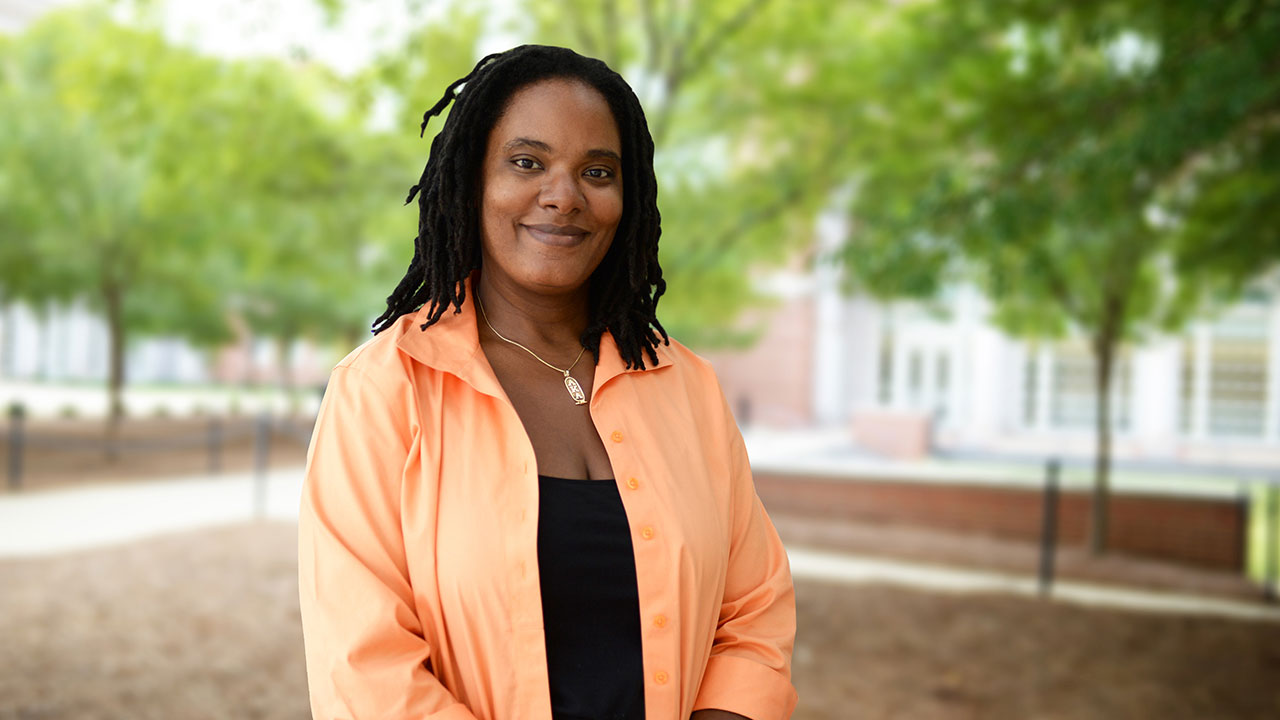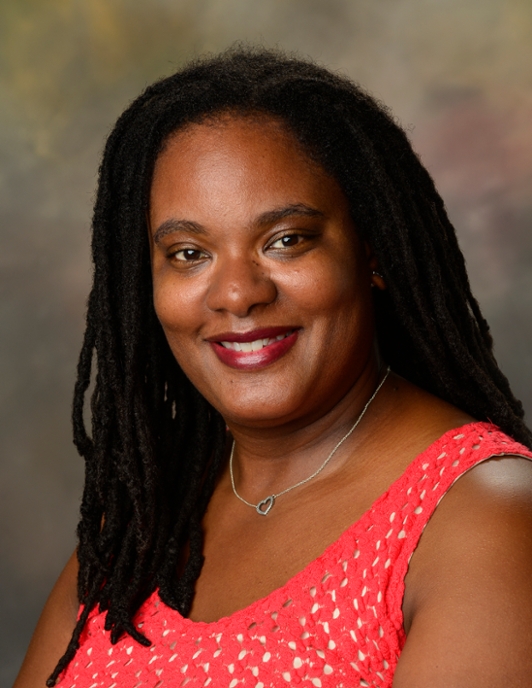Associate professor in CSSE leads collaborative project aimed at meeting needs of Native American, Latina and Black women in computing
Published: Oct 2, 2023 3:00 PM
By Joe McAdory
While much research into student and employee experiences in computer science focuses on specific demographics, few studies provide insight into intersectional circumstances.
Jakita Thomas, the Philpott-WestPoint Stevens Associate Professor in computer science and software engineering, plans to change that. Her collaborative project, “Intersectional Computing,” was awarded a one-year, $204,324 National Science Foundation (NSF) Early-Concept Grant for Exploratory Research (EAGER), which will serve as a springboard toward establishing a more inclusive and actionable research agenda focused on Native American, Latina and Black women in computing.
It begins with the NSF’s 14 Broadening Participation in Computing (BPC) alliances. One focuses on Black populations. Another focuses on women in technology. Others represent identity-inclusive and Latina populations.
“Each alliance focuses on a different community and what often happens is none of those groups serve an intersection, or cross section, of needs,” Thomas said. “Those experiences will be unique. Research has often reported in computing that Black women experience microaggressions and they are not able to decipher whether it's happening because they're Black or because they're a woman. When you focus on only race, or gender, people fall through the cracks who have different experiences. We know from intersectional computing that it's important to address the complexities of lived experiences of people in various groups.”
Thomas will implement a series of workshops, beginning next summer with a five-day intensive, to engage members of the BPC Alliances and Black, Latina and Native American women graduate students to develop a community of support in the field of computing. Feedback from the workshops will result in future research, Thomas said.
“The workshops are going to be about understanding work that the alliances are doing, understanding the populations they're currently serving, and the intersectional experiences present among those populations,” she said. “Then we need to help them consider what they're already doing that might be supporting those populations and design new interventions with intersectionality in mind to provide stronger support.
“From this, we hope the alliances will understand the core constructs of intersectionality, and understand the matrix of domination and how it functions inside of computing. Then they'll reframe their own practices and programs toward redesigning these interventions and projects to be truly inclusive and intersectional.”
Another workshop component includes reading groups, Thomas said. Many researchers engage in broadening participation and computing work with intersectional populations, but are unaware of literature that exists around the lived experiences of intersectional populations and how those experiences are unique from the dominant experiences that typically happen. “Familiarizing the community with that literature will be helpful, especially as it relates to designing new interventions that account for intersectional populations,” Thomas said.
Ultimately, Thomas believes EAGER would support building a community around intersectional computing that not only serves as a resource to the alliances, but also to build community around other scholars who are doing this type of work.
“The goal for us is to become another alliance that can help not only support the current alliances, but also expand intersectional computing,” she said.
Media Contact: , jem0040@auburn.edu, 334.844.3447
Jakita Thomas will implement a series of workshops, beginning next summer, to engage members of the Broadening Participation in Computing Alliances.


